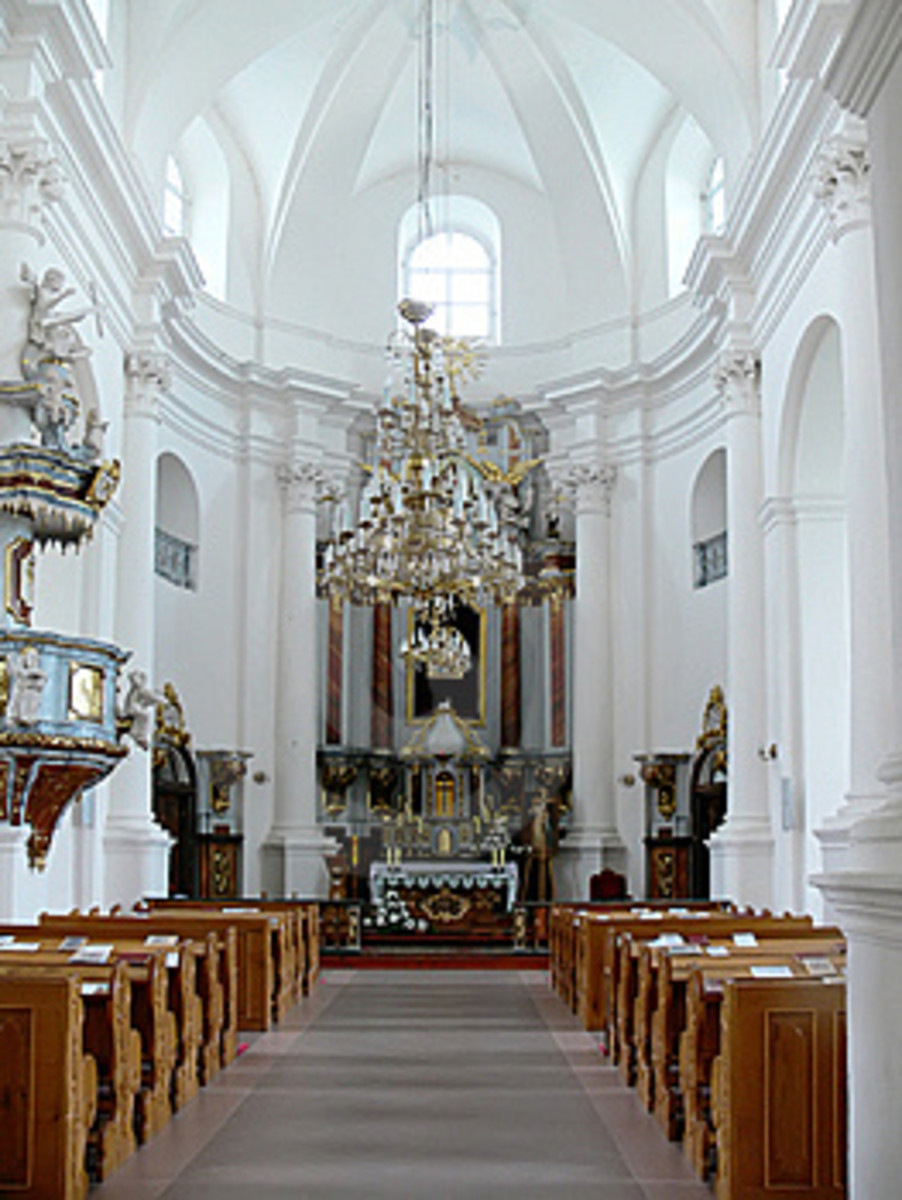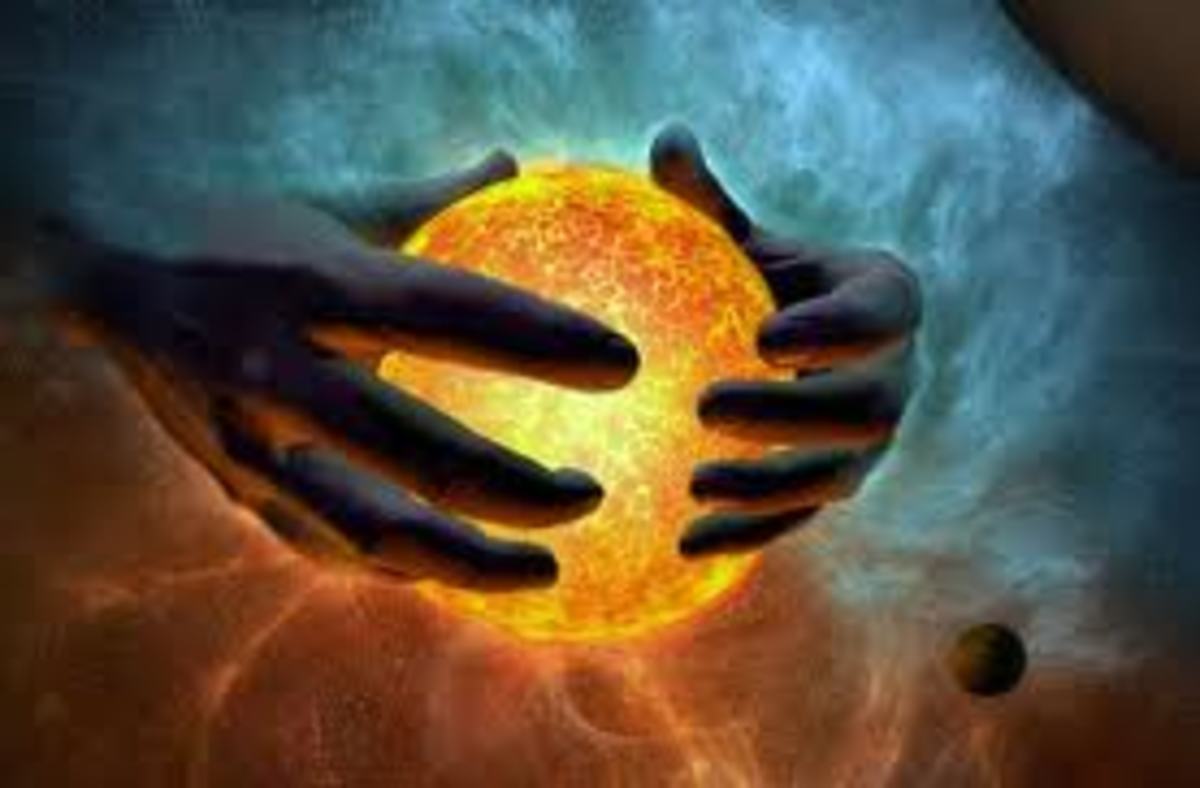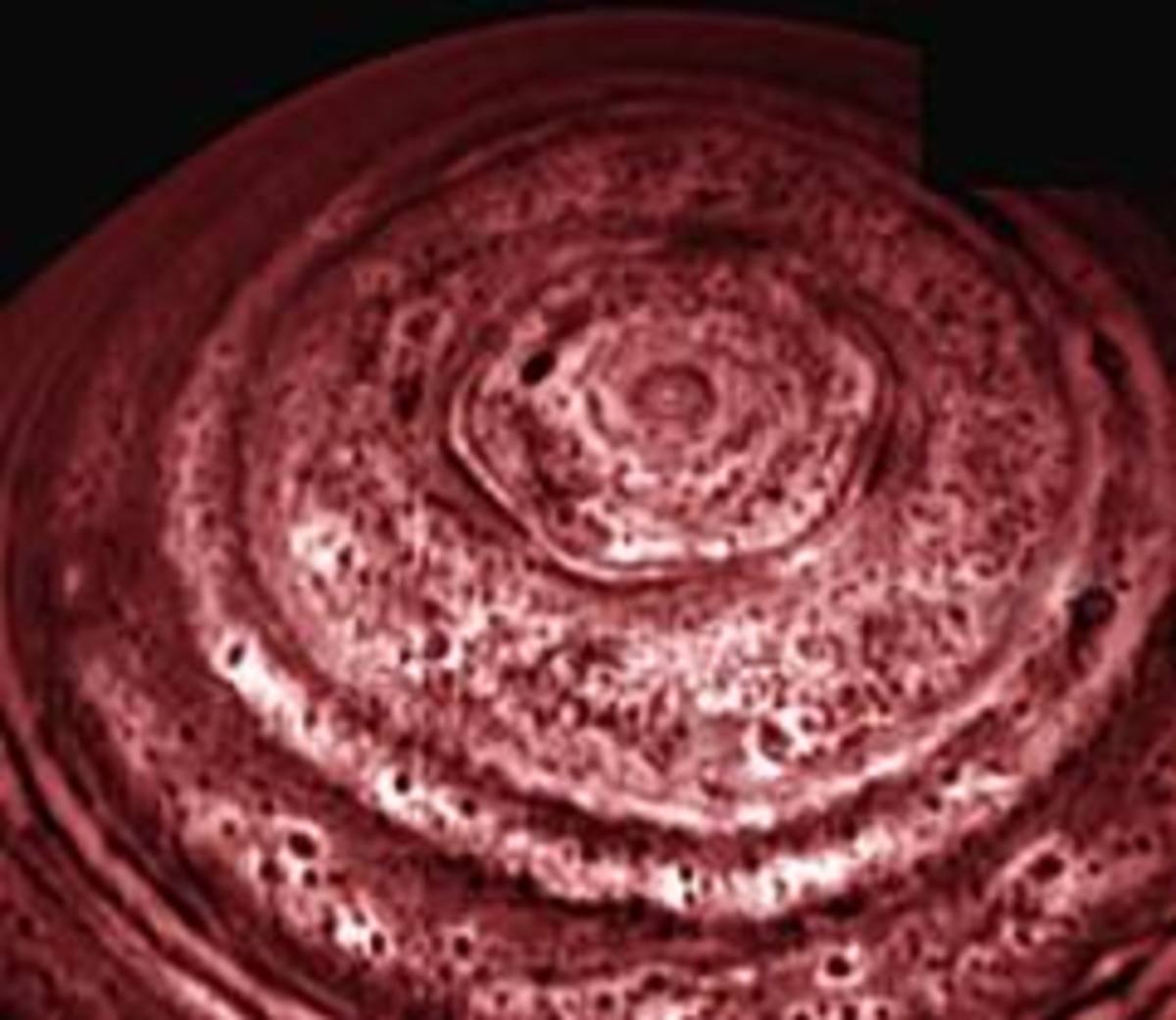Regular, Normal Christianity ~ Man, Sin, And Spiritual Death


This is the sixth entry in my series of "Regular, Normal Christianity" hub articles. After first setting forth my intent, and disclaimers (that I am sharing my own understanding and not asserting that I am THE arbiter of what ought to be counted as authentic Christianity), in the initial and hub "Regular, Normal Christianity ~ The Premise And Definitions", we proceeded to consider the basic, essential ideas of historic, Biblical Christianity.
We began our examination of regular, normal Christianity by presenting the first article, on the reliability of "The Bible", followed by an article on the very idea of "God", then the person and work of "Jesus of Nazareth", and then we looked at the concept of "The Trinity". Christian teaching on . With this article we look at "Man, Sin, And Spiritual Death" . . . who are we and how did we come to find ourselves in the circumstance we're in.
After we cover these foundational ideas of what historic, Biblical Christianity sets forth as the truth, we will then begin to examine some of contemporary American Christendom's teaching and practices in light of what regular, normal Christianity, Christianity that generations have always understood the Bible to present as Christianity, proclaims as God's own revealed truth.
Please see the bottom of this page for a list and links to the previous and subsequent articles.


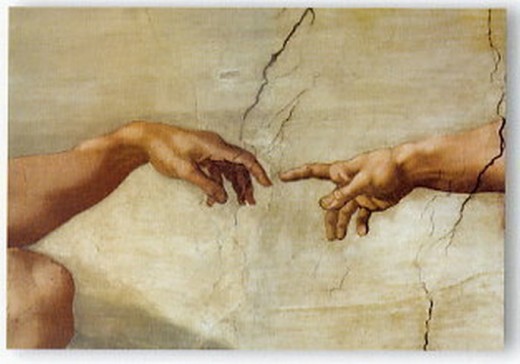
Man was created - God was not . . . there are many ways we are not at all like God, but He tells us Himself that He did create man in His own image
Man
Many are familiar with the very opening passage of the Bible - "In the beginning, God created . . .", and with the Scripture where God announces "Let us make man in our image". That passage continues "after our likeness" - exactly in what manner man, we, are like God is not announced. But as we both continue on with the rest of all of the text of Scripture, and as we observe the condition we find ourselves in, we can come to a sound and supportable understanding of some ways we were made in the image of God and are like Him.
We are living, conscious beings able to perceive the world we find ourselves in and with the cognitive ability to reason, understand, imagine, etc, ideas attached to the reality we exist in . . . and capable of owning feelings regarding what we perceive and how we think about it. And we were created individual persons yet very much like other individual persons. When we examined the concept of the Trinity we set forth that God the Father is the same in being as God the Son & God the Spirit, but that the Father is not the Son and the Son is not the Spirit, etc - God made man like Himself, in His image, in this regard, I am the same manner of creature as my neighbor but I am not my neighbor I am myself. We also know that God made man male and female and that this likewise reveals to us aspects about His being and character. And he made us creative, we can reproduce others like ourselves - just as God made us like Himself.
God also made man, in His own likeness, volitional beings, that is, we have a distinct and functioning will. Informed by what we perceive and how we think and feel about it, we own a capacity to deliberate and make real and consequential choices about our actions. All this. I believe, accurately describes both God and man, we were created like God in these regards.
God formed man from the dust of the ground and breathed into him the breath of life and man became a living soul . . . man was created - God was not. There are, of course, many ways we are not at all like God, but He tells us Himself that He did create man in His own image, so there are some ways in which are like God.
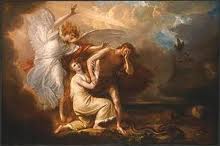
God is what good is, He is holy, whatever it is that He is or does is what is good - man, a volitional being, must make real and consequential choices about doing good or doing evil
Sin
Like God, man can make real and consequential choices . . . without coercion or hindrance from external forces, man can decide what action he desires to take. The great difference between man and God in this regard is that man was created innocent - God is eternally holy. God created man without compulsion or inclination toward good or evil - God does not merely follow or obey what is good, good is good because it is what God is and does . . . there is not some cosmic order of what is good and what is evil, whatever it is that is of God, that is what good is and whatever is not of God that is what evil is. God doesn't follow or fall in-line with some external from Himself standard - God Himself is the standard.
Man, created innocent, is not holy, the standard of what is good does not emanate from himself but rather man must conform to an external good, God's own holiness, if he is going to be good instead of bad. God is what good is, He is holy, whatever it is that He is or does is what is good - man, a volitional being, must make real and consequential choices about his actions, and being an independent soul with his own private understanding and feelings, man can choose to do what is good or choose to do what is evil . . . and, as good is what is of God and evil is what is not of God, man can choose to follow God or choose to resist God.
In that sense, that good is what is of God and evil is what is not of God, sin can be understood as a new idea, an idea that is not God's idea. God told Adam not to eat from the tree of the knowledge of good and evil - but Adam had a new idea, a different idea, his own idea, an idea that was not of God but was fully contrary to God's idea. God created man innocent, neither good nor evil . . . man was good in the sense that he had not yet done evil, he was innocent of any evil, but he was not good in the sense that he always and only could do good. Man was created with a free will, he had to determine for himself what course he would take, he was not bound to do good and he was not restricted from doing evil - man was created an authentic volitional being, able to make personal choices.
Man was created an autonomous person, he could choose to obey God or rebel against God. God placed man in a beautiful garden and walked with him there in the cool of the day. God gave man dominion over all His creation and loved him and cared for him. Man was free to do as he pleased, but God placed man in an environment and enjoyed a relationship with him that provided man with the best circumstance to choose good over evil. And He cautioned man with a warning about disobeying, about following his own idea rather than following God's idea . . . 'On that day you will surely die'.

Man is spiritually dead - we fashion our own notions of who God is and how we can appease Him and concoct elaborate religions with rules and rituals we imagine enable us to find God and make ourselves acceptable to Him
Spiritual Death
. . . however, man did not seem to die as a result of his rebellion. Not only did man appear not to die 'on that day', but God instituted a covenant with man, a promise that one day a descendant of man would come to save men from the 'death' God had warned them of by giving them the gift of eternal life. Now, had Adam not sinned he would not have, eventually, died . . . Adam died 'on that day' in the sense that he began to die and eventually was dead. Adam, man, would have lived forever, but because of sin, he did die . . . but again, eventually. But, is there a sense in which Adam did indeed die 'on that day'?
Not dying is not eternal life, but is human life continuing on forever. God is eternal, He is a living spirit (always) existing outside of time - man is created in time, and even if he does not die, his life continues on, in time, from his birth until his 'now'. Remember, when God created man, He breathed into him and man became s living soul . . . that term "breathed' is throughout Scripture the same term used for "spirit", it is a movement, a wind, a breath. God, who is the eternal Spirit, took of Himself and breathed, spirited, life into man - innocent man was bonded to God, related to God. When man rebelled and followed his own thinking rather than following God's thinking, God's Spirit withdrew and man was ejected from the garden where he walked with God. Man died spiritually.
'On that day' man died a spiritual death - he began the processes of physical death, but he died 'on that day' spiritually. The promise of the covenant God announced in the garden and the message of the gospel of Jesus is that God has determined to save man from the judgment and condemnation of his rebellion, and the promise is that He will put His own spirit within us, He will give us the gift of eternal (spiritual) life. That is the promise, that is the gospel - however, unsaved man is in a state of spiritual death.
We no longer walk with God in the garden, instead we fashion our own notions of who God is and how we can appease Him. We concoct elaborate religions with rules and rituals that we imagine make us acceptable to God . . . every religion man has ever dreamed-up is essentially the same idea - if we do 'this', if we obey 'these' rules' and practice 'these' rituals we can find God and He will approve of us. From Islam to Wiccan, from Mormonism to Hinduism, etc, all man's religions offer the same notion - if we do 'this' religion God will accept us. Man is spiritually dead, inventing his own schemes to return to God, when, from the beginning, God told us the way back to Him . . . He promised a Savior to do what we cannot do, what no religion can accomplish, what no man deserves but is freely given as a gift - the gift of eternal (spiritual) life.
Next, we will look at that promise, the covenant, the gospel message.
please share your comments below ~


Preface. "Regular, Normal Christianity ~ The Premise And Definitions"
1. Regular, Normal Christianity ~ "The Bible"
2. Regular, Normal Christianity ~ "God"
3. Regular, Normal Christianity ~"Jesus of Nazareth"
4. Regular, Normal Christianity ~ "The Trinity"
5. Regular, Normal Christianity ~ "Man, Sin, And Spiritual Death"
6. Regular, Normal Christianity ~ "The Covenant, The Promise, The Covenants, And The Gospel"
7. Regular, Normal Christianity ~ "The Atonement - Law & Grace"
The Christian & Private Study - A 'How To' Guide
-
'How To Study The Bible'
-
'The Christian Library'
-
'Christian Life Lessons'
"Is Believing In God A Ridiculous Thing?"
"The Most Married Man In America"
please share your comments below ~

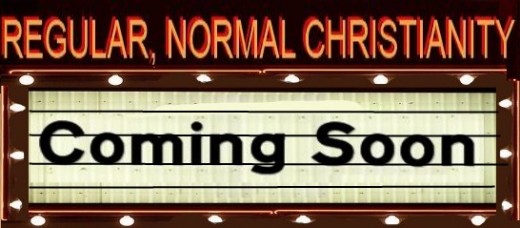
Next ~ we will continue, in an orderly manner, examining the the atonement, the gospel message, the church, etc, etc . . . once we cover these essential Christian teachings from an orthodox historic and Biblical perspective, we will examine some of the specific ideas popular contemporary American Christendom advances.
please share your comments below ~


"Warm affections, without knowledge, can rise no higher than superstition; and that knowledge which does not influence the heart and affection, will only make a hypocrite"
~ John Newton

Please do visit my other hubs ~
The Saturday Matinée
"A Preview"
1. "Mysterious Island"
2. "Horror Of Dracula"
3. "This Island Earth"
LOGISMOS
1. "The Seasons"
2. "Why Do We Write?"
General Fussing About ~
1. "Vampires"
2. (coming soon)
Miscellaneous
"The Best Halloween Movie"
"Do I believe in love at first sight? Yes - sort of . . ."
"Leonard - The Best Dog Ever"


